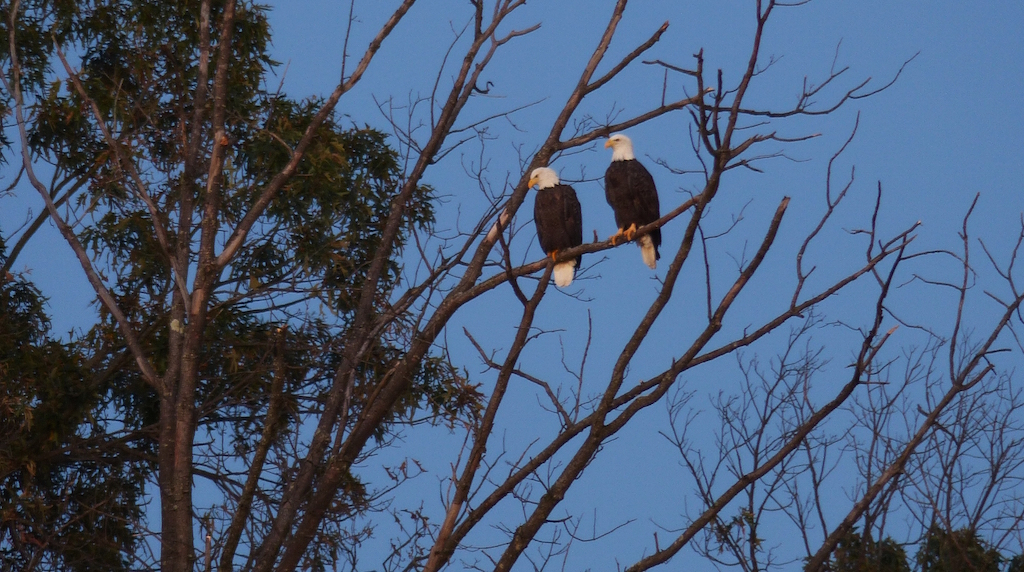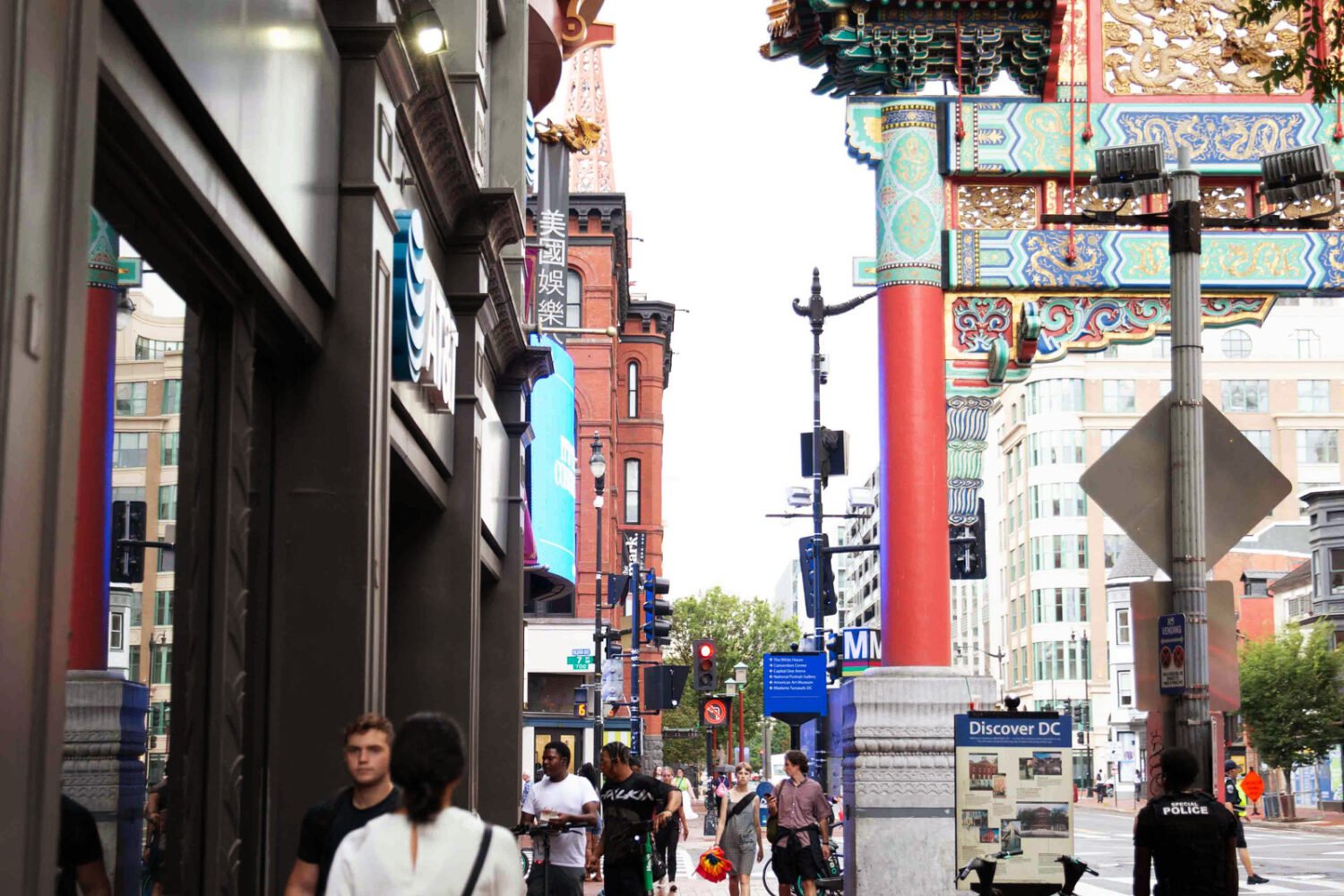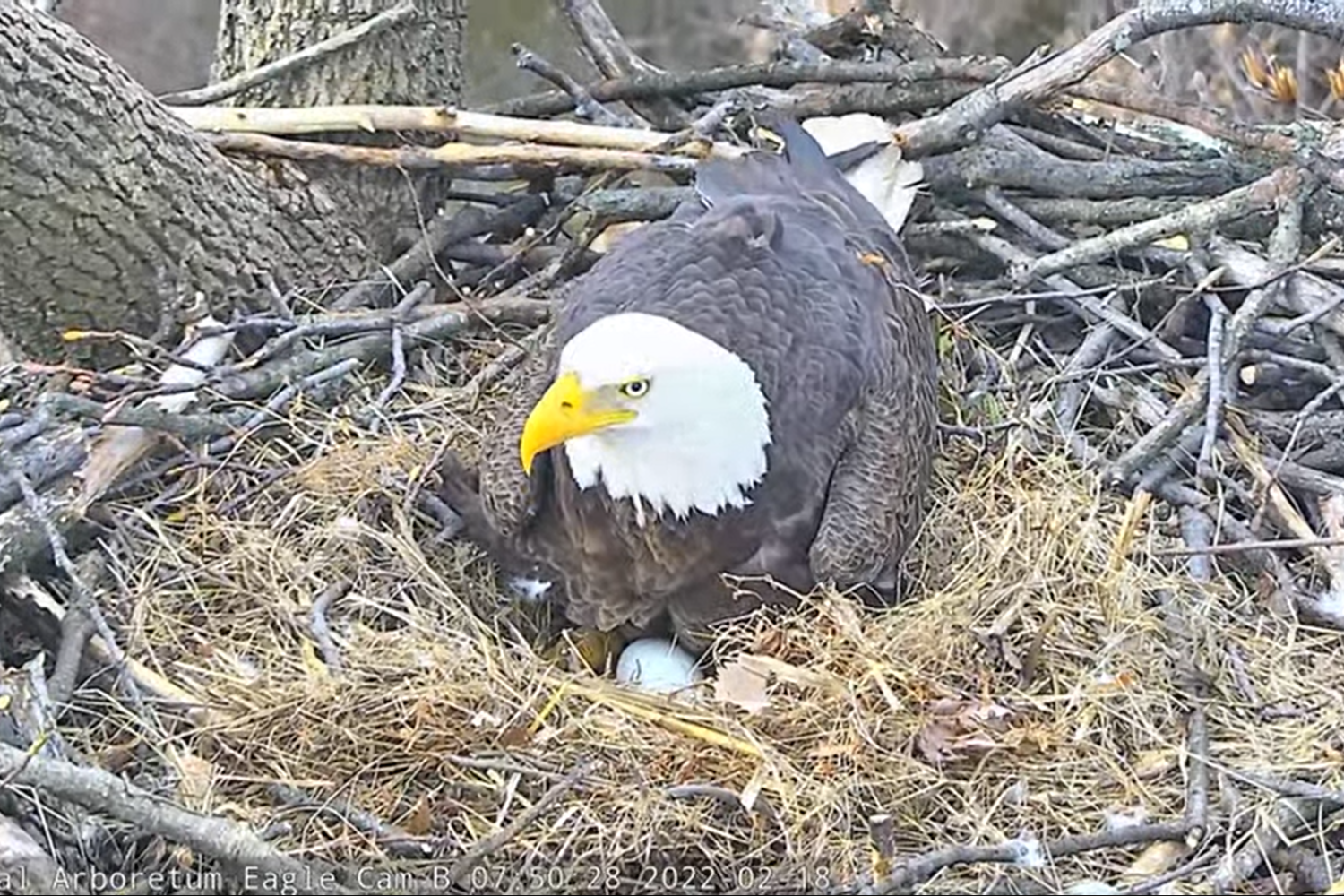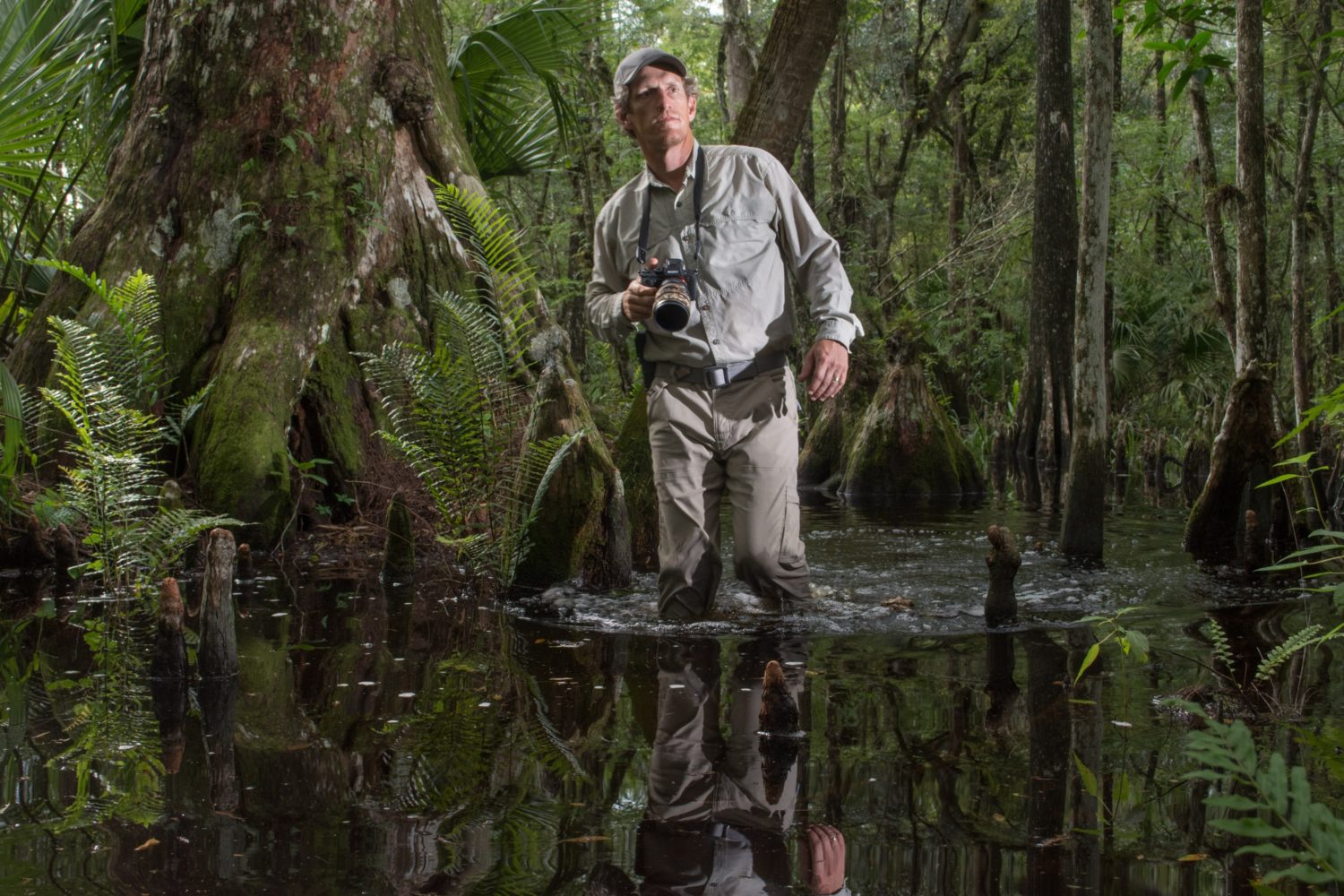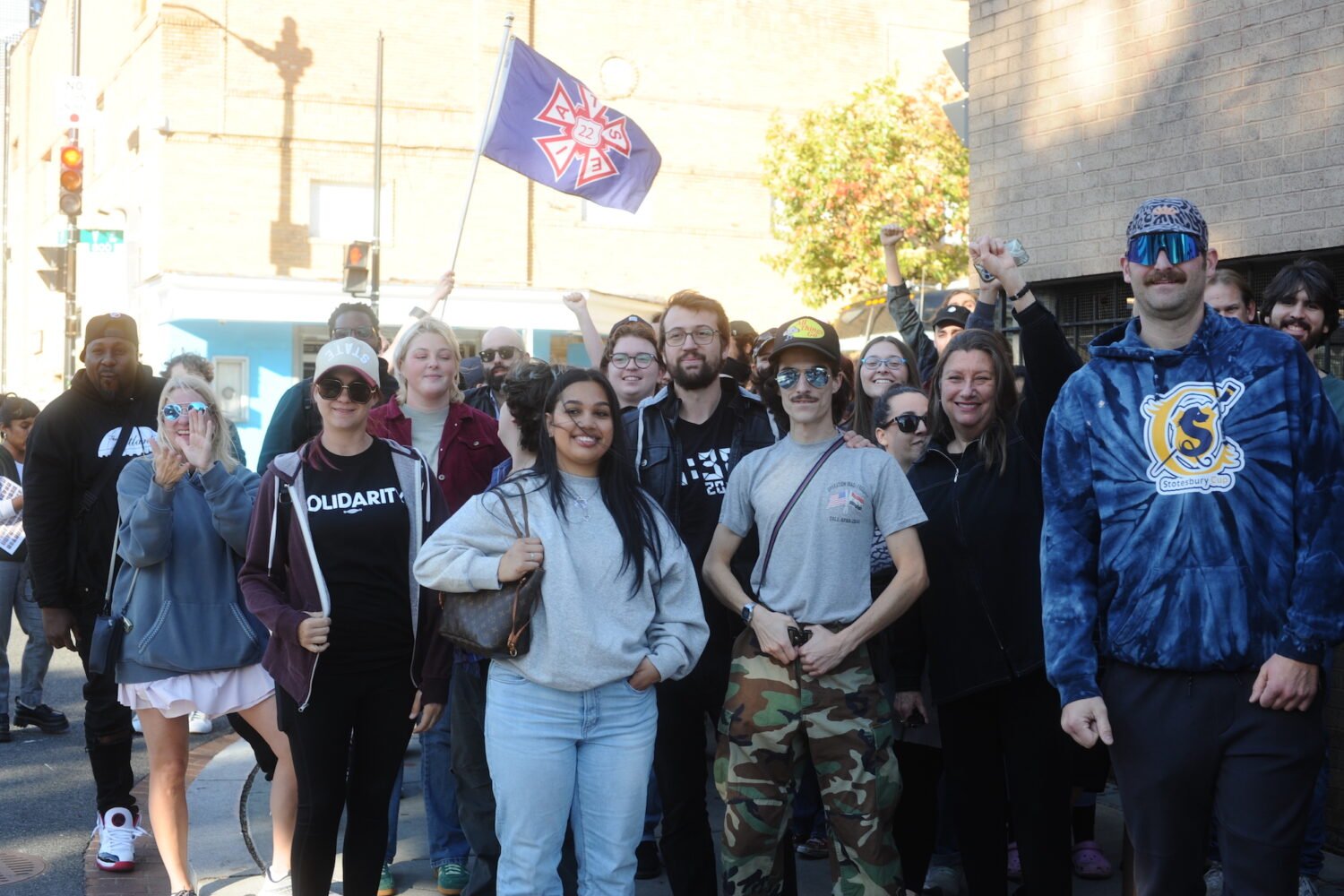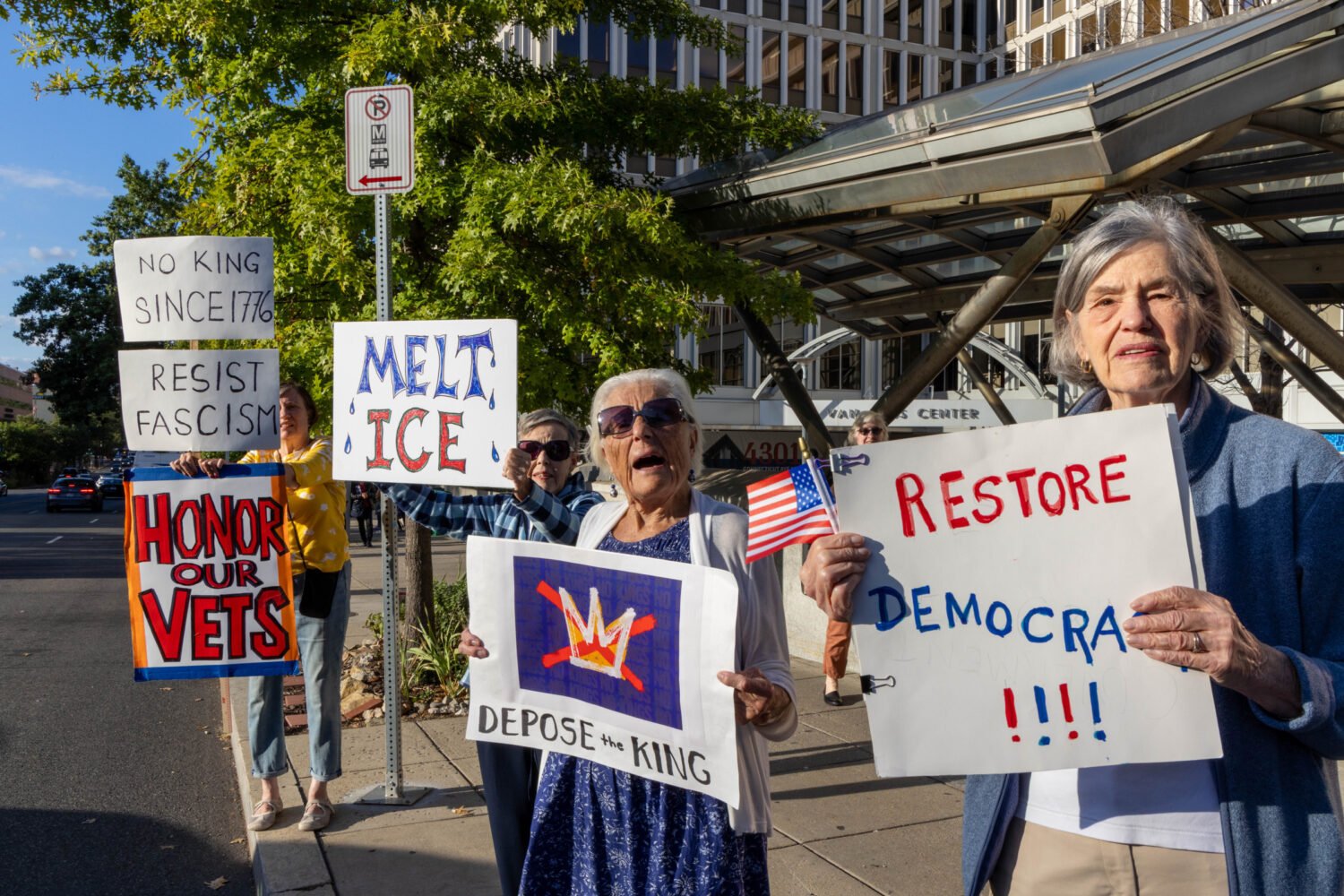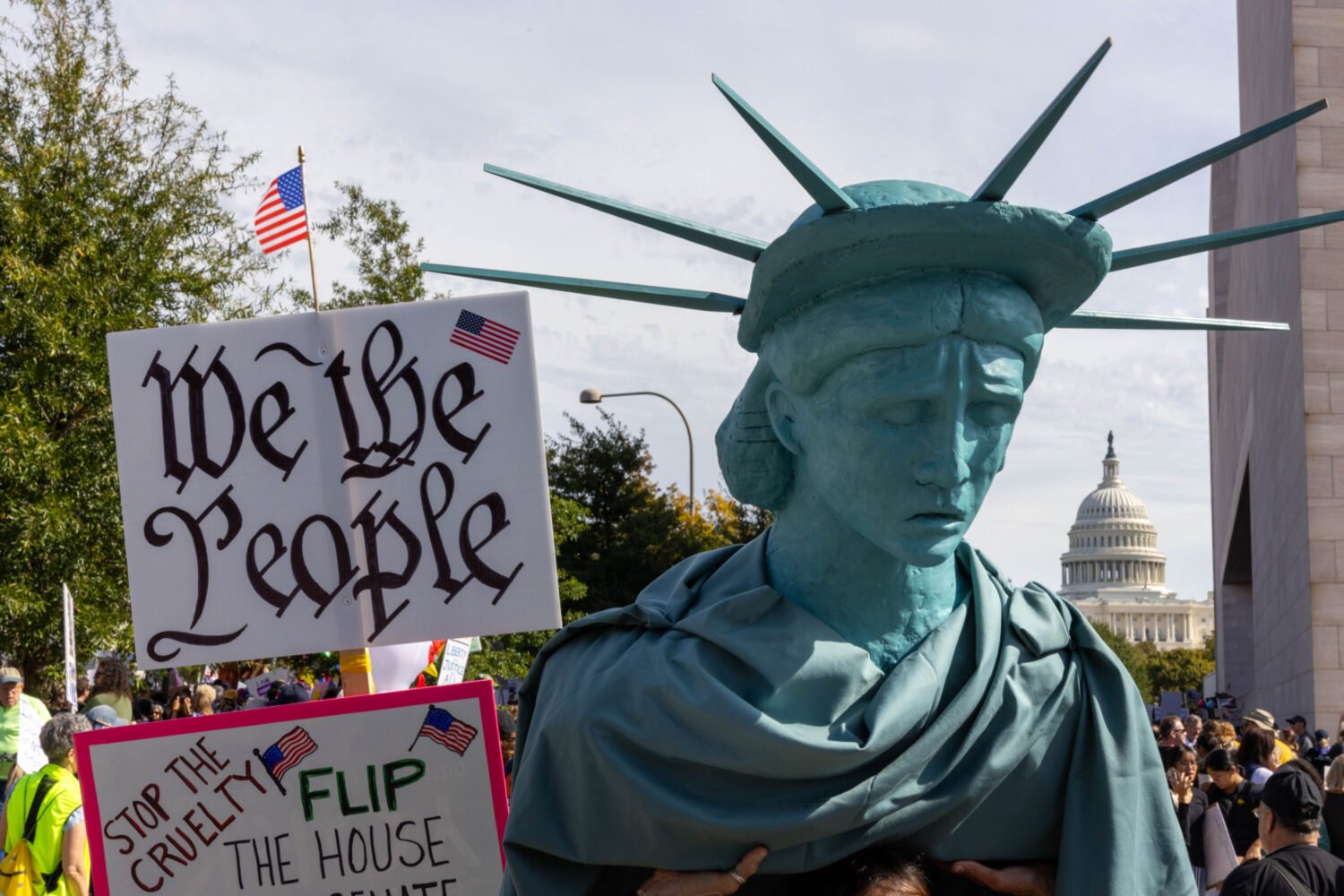A group of environmentalists in Manassas filed a lawsuit earlier this month in Virginia’s Eastern District Court against the US Fish and Wildlife Service and the Department of the Interior, claiming the agencies have allowed developers to construct office buildings near an eagles’ nest in violation of federal law.
The group’s attorney, David Webster, says Fish and Wildlife, in particular, did not act properly. “They should have required a permit,” he says. “They just sent a letter saying, ‘You can go ahead and construct.’”
Although eagles were removed from the endangered species list in 2007, they are protected under the Migratory Bird Treaty Act and as the national bird under the Bald and Golden Eagle Protection Act. Law requires a permit to remove or kill an eagle, or to disturb it to the point that it abandons its nest or changes its nesting behavior.
Since early 2015, residents have protested the sale and development of a private plot of land on Gateway Boulevard near the Manassas airport, where a pair of bald eagles has lived for four years in a tree just outside the property line on city-owned land.
Amber Taylor, a former animal welfare investigator, frequent poster on the grassroots activists’ Facebook page, Manassas Airport Eagles, and plaintiff in the suit, has been photographing the birds for two years. Like other eagle-lovers, she thinks the birds’ habits have already been disrupted by the construction of two new office buildings. She fears they will soon be driven out of their nest forever.
“Before construction started, you could drive by and it didn’t matter what time of day—6 in the morning, 1 in the afternoon—you could find them by their nest,” Taylor says. Now, it’s different. “Once the construction crews start making noise in the morning, the eagles leave and you won’t see them again until the last people leave for the day.”
Development company and landowners the Pruitt Corporation did, in fact, apply for a so-called eagle take permit last year to build on the lot, which would allow them to encroach on the eagle’s environment. Fish and Wildlife replied in July 2015 with a letter saying the workers would not need a permit—even to build within the 330-foot buffer around the nest, recommended in Fish and Wildlife’s National Bald Eagle guidelines—as long as they waited to begin construction until August 1, 2016, when nesting season was over.
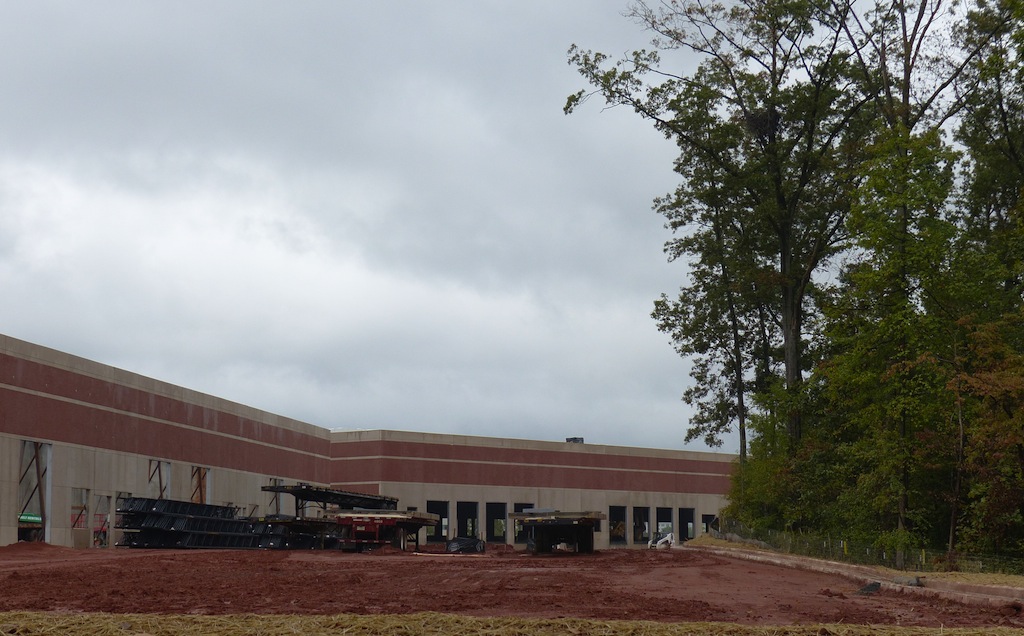
This year, however, multiple local news sources reported workers had begun clearing and grading before August 1. Trees were felled and chopped up, and dirt overturned in July.
Webster says nothing within federal law limits eagles’ protected status to nesting season. Fish and Wildlife, he says, “should have instructed the owner of the real estate to use the standard 330-foot boundary for not disturbing eagles,” he says. “They did nothing. They said go ahead and build it.”
Peter McCabe of Pruitt Corporation confirms the company applied for a permit and was told by Fish and Wildlife they didn’t need one. “We secured all the approvals necessary and we are proceeding according to that,” he says.
A representative from Fish and Wildlife’s Northeast Region said the agency cannot comment on the situation because of the lawsuit.
The suit seeks to have Fish and Wildlife rescind the letter and issue a permit before the Pruitt Corporation can finish the construction project. Webster adds that he’s asking the court for “some kind of architectural barrier” between construction equipment like cranes and the nest, as recommended by Fish and Wildlife’s national guidelines.
Community support for the eagles goes beyond Facebook fandom.
On October 17, eight people spoke on the subject at the Manassas City Council meeting.
Bob Lowell, who works at an IT company across the street from the nest, agreed with Taylor that the eagles have become scarcer since construction began.
“Maybe we can put signs up around the trees, around the back of the buildings,” he said to the councilmembers. “We’re asking you to come up with some kind of method so that we can keep the peace with the eagles.”
Six middle-school-aged Boy Scouts in uniform also approached the lectern. The boy who spoke said companies should “look out for these eagles instead of building wherever they want to.”
Victor Rook, a documentarian and self-proclaimed eagle addict, has been posting multiple videos a week of the nest and construction zone to the eagles’ Facebook page. He videotaped the meeting.
“It’s our national bird. It’s our freedom,” he said afterward. He hopes to see the construction project undone entirely. “Tear the damn thing down,” he said. “Have the city buy it, and make it a parkland.”
Correction: An earlier version of this article misidentified Amber Taylor as an administrator of the Manassas Airport Eagles Facebook group. She posts frequently to the discussion.

